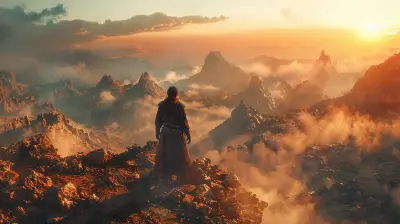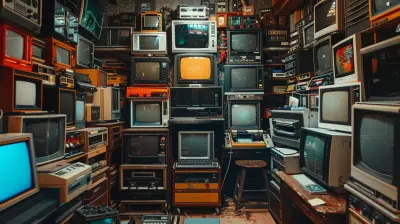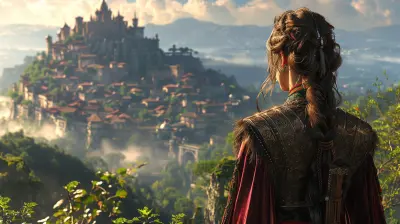How Retro Games Shaped Modern Gaming
24 March 2025
The gaming industry has come a long way since the early days of pixelated characters and chiptune soundtracks. Yet, if you peel back the layers of today's blockbuster games, you’ll find that much of their DNA can be traced back to retro classics. Nostalgia aside, these retro games didn’t just entertain us—they laid the groundwork for many of the mechanics, gameplay elements, and design principles we now take for granted. So, grab your joystick (or your virtual one!), and let’s dive into how retro games shaped modern gaming.
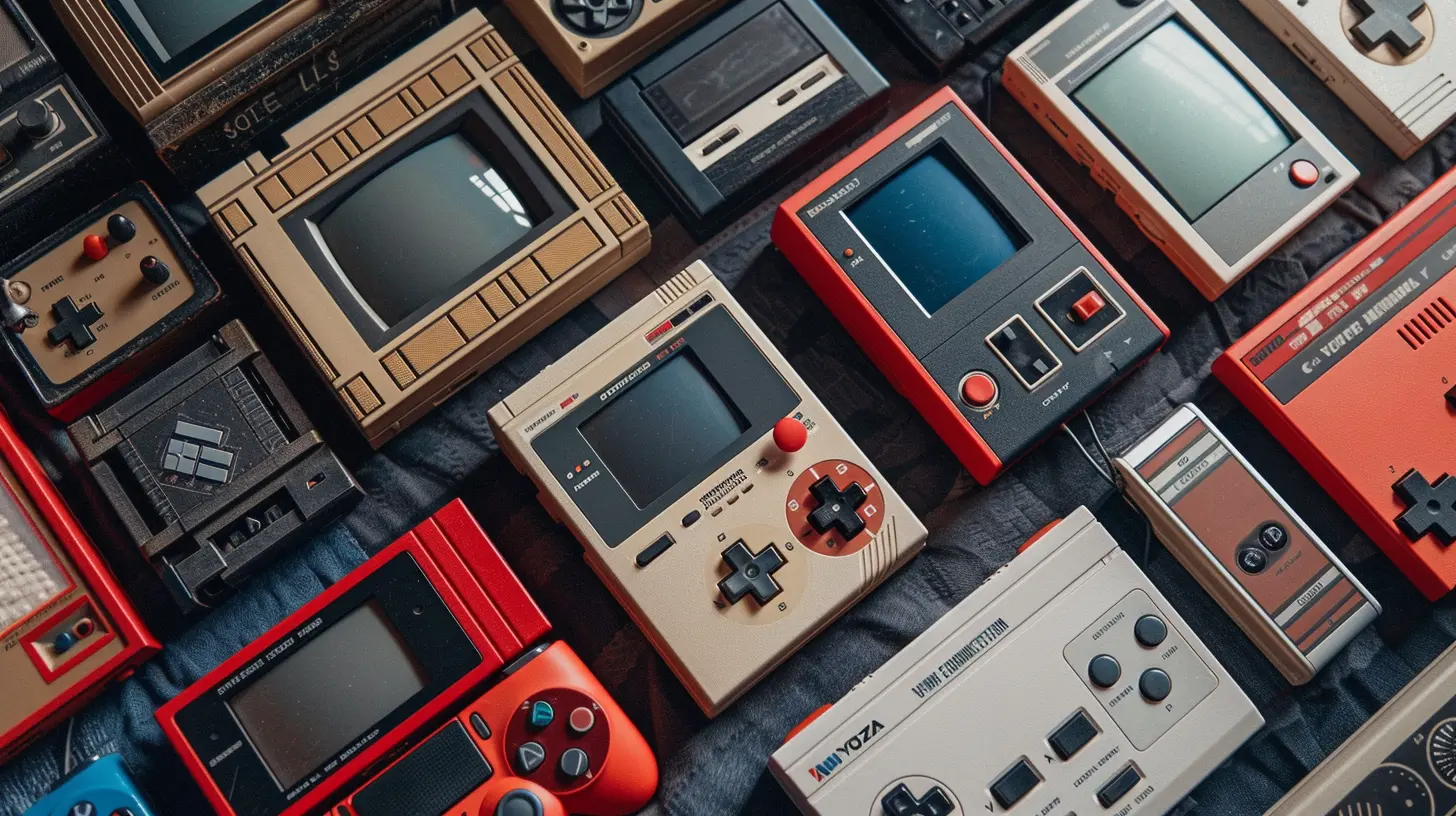
The Birth of Gaming: Simple Beginnings with Big Ideas
Let’s go all the way back to the pioneers of gaming. Titles like Pong, Space Invaders, and Pac-Man weren’t just fun distractions; they were groundbreaking. These games turned the idea of interactive entertainment into a reality.Take Pong, for instance. This simple table-tennis simulation introduced the concept of competitive play, something that's a cornerstone of gaming today. Whether you're battling it out in Call of Duty or climbing the ranks in League of Legends, the thrill of competition stems from this humble arcade game.
Space Invaders helped establish another key element of modern gaming: progression. As alien waves sped up and the difficulty increased, players were hooked, driven to improve their high scores. Sounds a lot like the ranking system in your favorite FPS or RPG grind, doesn’t it?
And who could forget Pac-Man? This little yellow icon gave us non-linear gameplay and famously introduced the first video game character with a personality. Fast forward to now, and we’ve got games with fully fleshed-out narratives and characters we can’t help but care about.
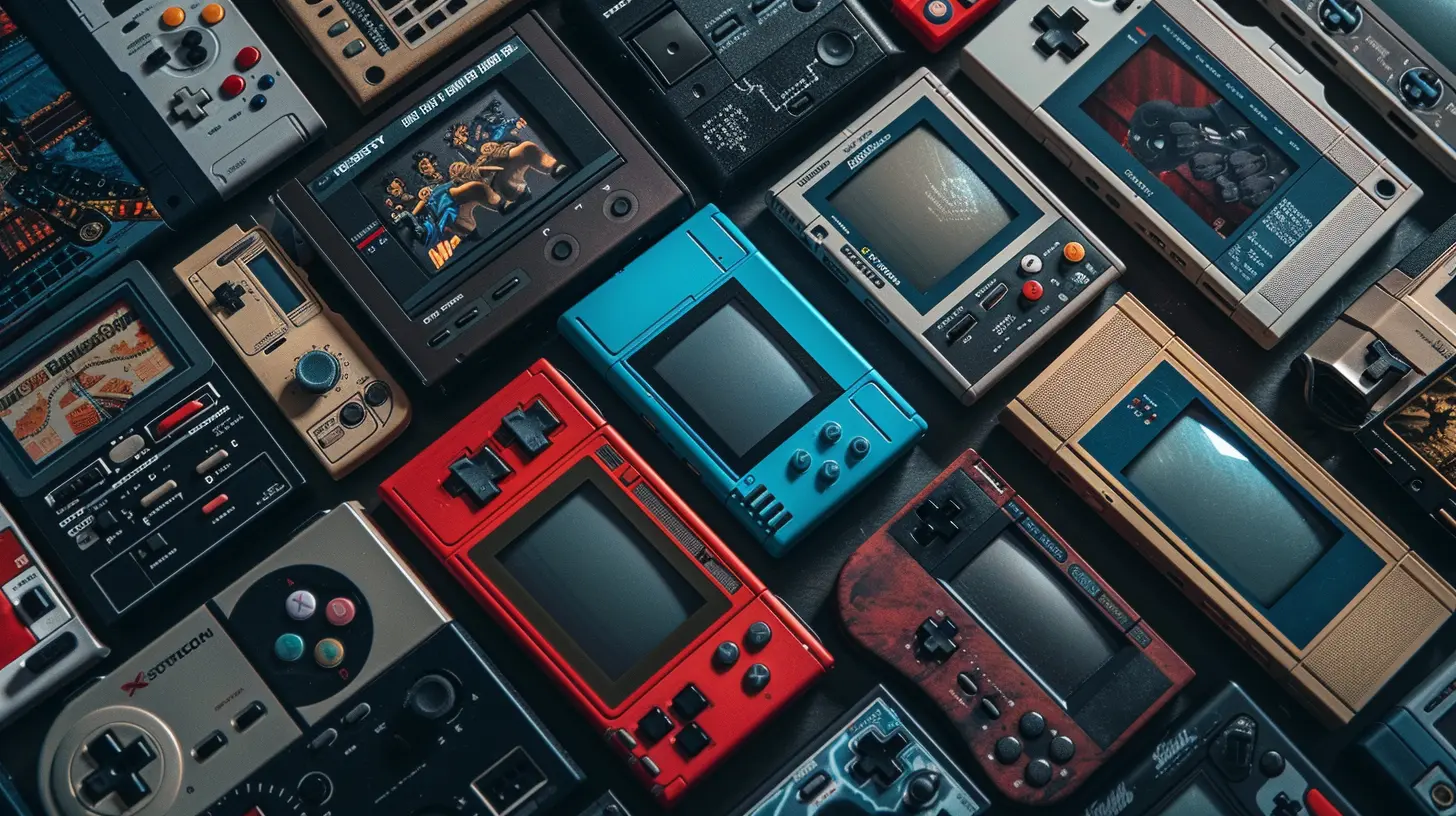
Challenging the Player: How Difficulty Defined Gaming
Let’s be real—retro games didn’t hold your hand. They were tough, often frustratingly so. You had three lives, maybe a handful of continues, and if you ran out? You started from scratch. Talk about character building!This level of difficulty bred a culture of skill-based gaming. You had to “git gud” before it was even a meme. Today, many modern games pay homage to this with challenging titles like Dark Souls and Celeste. These games embrace the “tough-but-fair” philosophy that retro games mastered, proving there’s still a place for hardcore gameplay even in an era of casual mobile games.
In many ways, retro games taught us that losing isn’t failure—it’s a lesson. Every "Game Over" gave you a reason to try again. It’s a mindset that still fuels the gaming community today, especially in speedrunning and esports.
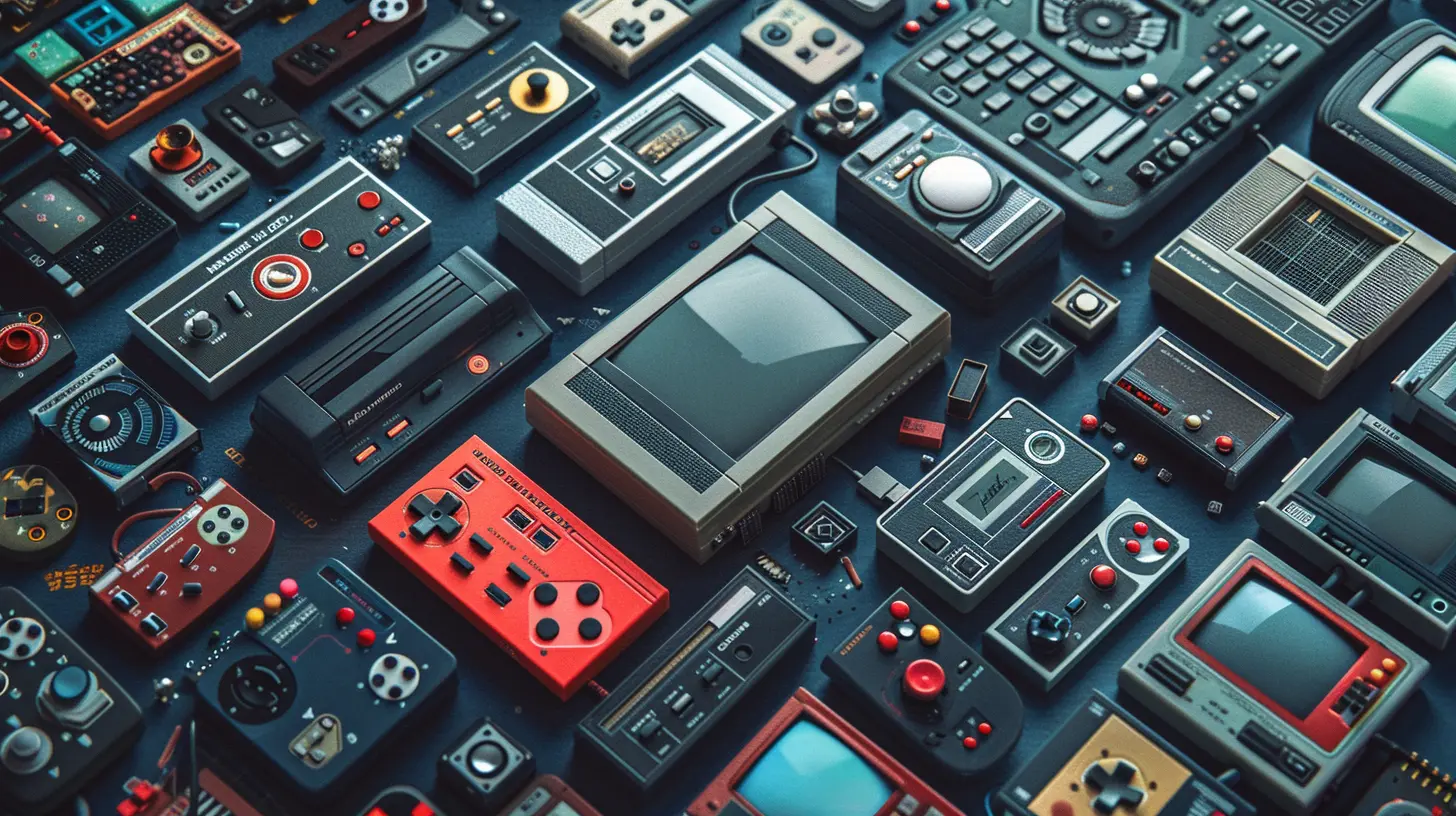
Game Design: Where Old Meets New
Modern gaming owes a lot to the creativity and innovation of retro game developers. With limited hardware and software capabilities, developers had to make the most out of what they had. It’s kind of like trying to bake a gourmet cake with only a microwave and a handful of ingredients—they had to get really creative.Take the level design of Super Mario Bros.. Every Goomba, platform, and power-up was placed with purpose. The game subtly taught players the rules without overwhelming them. Modern games, from Hollow Knight to Celeste, follow this same design philosophy of teaching through gameplay rather than lengthy tutorials.
And remember the open-world sandbox of The Legend of Zelda? Players were free to roam, discover secrets, and tackle objectives in their own way. This concept laid the groundwork for today’s sprawling open-world games like Breath of the Wild and Skyrim. Retro games proved that giving players freedom fosters a sense of connection and ownership over the world they’re exploring.
8-Bit Music: The Foundation of Gaming Soundtracks
Quick question: can you hum the theme from Super Mario Bros.? Of course, you can. Retro games popularized the idea of music being more than background noise—it became an integral part of the gaming experience.Limited to just a handful of sound channels, composers in the retro era had to craft memorable, catchy tunes using simple melodies. These tracks weren’t just iconic; they set the emotional tone for each level. The eerie underwater theme in Mario, the adrenaline-pumping beats of Contra, or the triumphant victory fanfare in Final Fantasy—all of these shaped how we experience music in modern games.
Today, orchestral soundtracks in games like The Last of Us or God of War owe a debt of gratitude to these pioneers. Without retro game music, we might not have the stunning audio experiences we enjoy today.
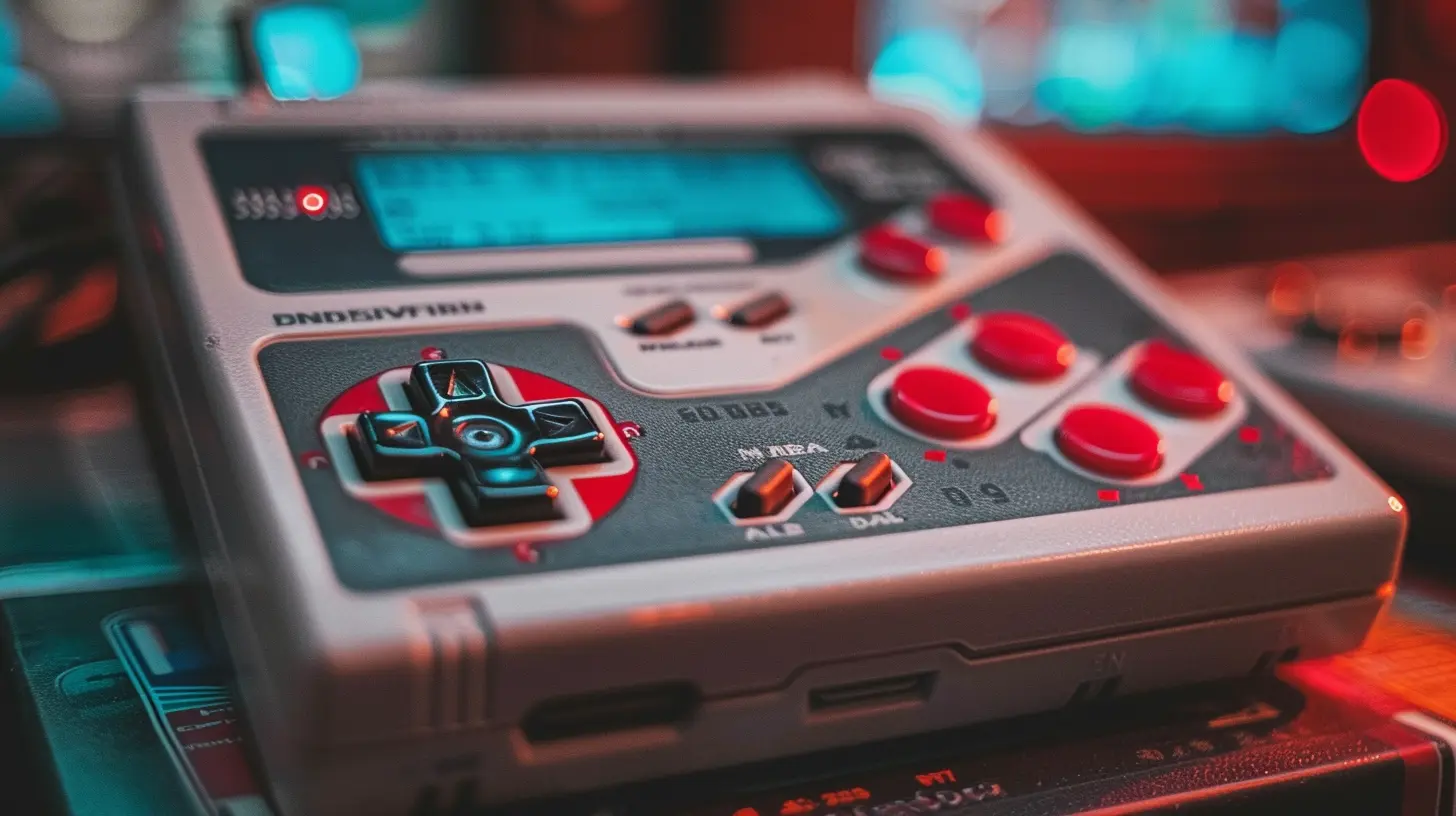
The Rise of Genres: Retro Games Paved the Way
Every genre we know today—platformers, shooters, RPGs, puzzle games—can trace its roots back to the retro era. Let’s break down a few examples:- Platformers: Donkey Kong and Super Mario Bros. laid the foundation for games where jumping and navigating tricky terrain is the main focus. Modern classics like Celeste and Ori and the Blind Forest carry this torch.
- RPGs: Titles like Dragon Quest and the original Final Fantasy introduced us to leveling systems, party building, and epic storytelling. These ideas evolved into games like The Witcher 3 and Persona 5.
- Shooters: Doom and Wolfenstein 3D practically invented the first-person shooter genre, which is now a massive part of the gaming industry with titles like Halo and Call of Duty.
Retro games didn’t just create genres; they defined the building blocks that modern developers continue to refine and expand.
Community Building: Arcade Culture and Beyond
Back in the day, gaming wasn’t a solitary activity. Whether you were battling it out in Street Fighter II at the local arcade or passing the controller for another round of Contra at home, gaming was social by nature.This sense of community has only grown in modern gaming. Online multiplayer, Twitch streaming, and esports all owe their roots to the camaraderie (and rivalries) fostered by retro games. Remember the thrill of seeing your initials in the high-score list? That competitive spirit is alive and well in everything from online leaderboards to speedrunning marathons.
Retro Nostalgia in Modern Gaming
Let’s not forget how many modern games directly reference or emulate retro aesthetics. Indie hits like Stardew Valley, Undertale, and Shovel Knight blend pixel art and chiptune music with modern gameplay mechanics. These games aren’t just charming; they’re a love letter to the era that shaped them.Even major studios are cashing in on the nostalgia. HD remakes, reboots, and “classic editions” of old consoles prove that retro games still hold a special place in our hearts. It’s like dusting off an old vinyl record—sometimes we crave the simplicity and charm of the past.
Final Thoughts: The Legacy of Retro Games
Retro games weren’t just the start of an industry—they were a spark of creativity and innovation that still burns brightly today. They taught us to think outside the box, embrace challenges, and connect with others through shared experiences. From their iconic characters to groundbreaking gameplay, retro games are the backbone of modern gaming.So, next time you fire up your favorite new release, take a moment to appreciate the classics that got us here. They’re more than history—they’re the foundation upon which the future of gaming is built.
all images in this post were generated using AI tools
Category:
Retro GamesAuthor:

Brianna Reyes
Discussion
rate this article
6 comments
Mason Hodge
Retro games laid the foundation for today’s gaming landscape, influencing design, storytelling, and player engagement. Their innovative mechanics and unforgettable experiences continue to inspire and shape the future of the industry.
April 7, 2025 at 4:35 PM

Brianna Reyes
Absolutely! Retro games not only set the stage for modern design and storytelling but also introduced mechanics that still resonate with players today, proving their lasting impact on the industry.
Chase McFarlane
Ah, retro games—the pixelated pioneers of our gaming universe! They didn’t just shape modern gaming; they practically built it with 8-bit blocks and a side of nostalgia. Here’s to the joystick warriors who paved the way for our joystick-fueled adventures today!
April 6, 2025 at 3:34 AM

Brianna Reyes
Absolutely! Retro games laid the foundation for today's gaming landscape, blending nostalgia with innovation and inspiring countless adventures. Here's to the pioneers!
Lorelei McEvoy
This article beautifully captures the nostalgia and impact of retro games on today’s gaming landscape. It’s heartwarming to see how these classics continue to inspire creativity and connection among players, bridging generations with their timeless charm and innovative spirit.
April 5, 2025 at 4:32 PM

Brianna Reyes
Thank you for your kind words! I'm glad the article resonated with you and highlighted the enduring influence of retro games on today's gaming culture.
Maura McFadden
Retro games laid the foundation for modern gaming by introducing core mechanics, storytelling, and innovation. Their pixelated charm and simple gameplay fostered creativity, inspiring today’s developers. As we celebrate this evolution, it's crucial to recognize how nostalgia fuels contemporary designs, reminding us that the past is a vital part of the present.
March 31, 2025 at 2:52 PM

Brianna Reyes
Absolutely! Retro games were pioneering in establishing key gameplay mechanics and storytelling that still resonate today. Their charm and simplicity have indeed inspired modern developers, proving that nostalgia plays a significant role in shaping current game design.
Hunter McEvoy
Absolutely love this article! It’s fascinating to see how those pixelated classics laid the groundwork for today’s immersive experiences. Retro games had such a unique charm that continues to influence game design and storytelling. Nostalgia really is a powerful force!
March 25, 2025 at 4:54 AM

Brianna Reyes
Thank you! I'm glad you enjoyed the article. It’s amazing how those retro games continue to inspire and shape the gaming landscape today!
Cecilia Duke
This article beautifully highlights the nostalgia and innovation of retro games. Their impact on modern gaming is profound, reminding us of our roots and the joy they continue to bring. Thank you for this thoughtful perspective!
March 24, 2025 at 5:28 PM

Brianna Reyes
Thank you for your kind words! I'm glad you enjoyed the article and appreciate the enduring influence of retro games.


